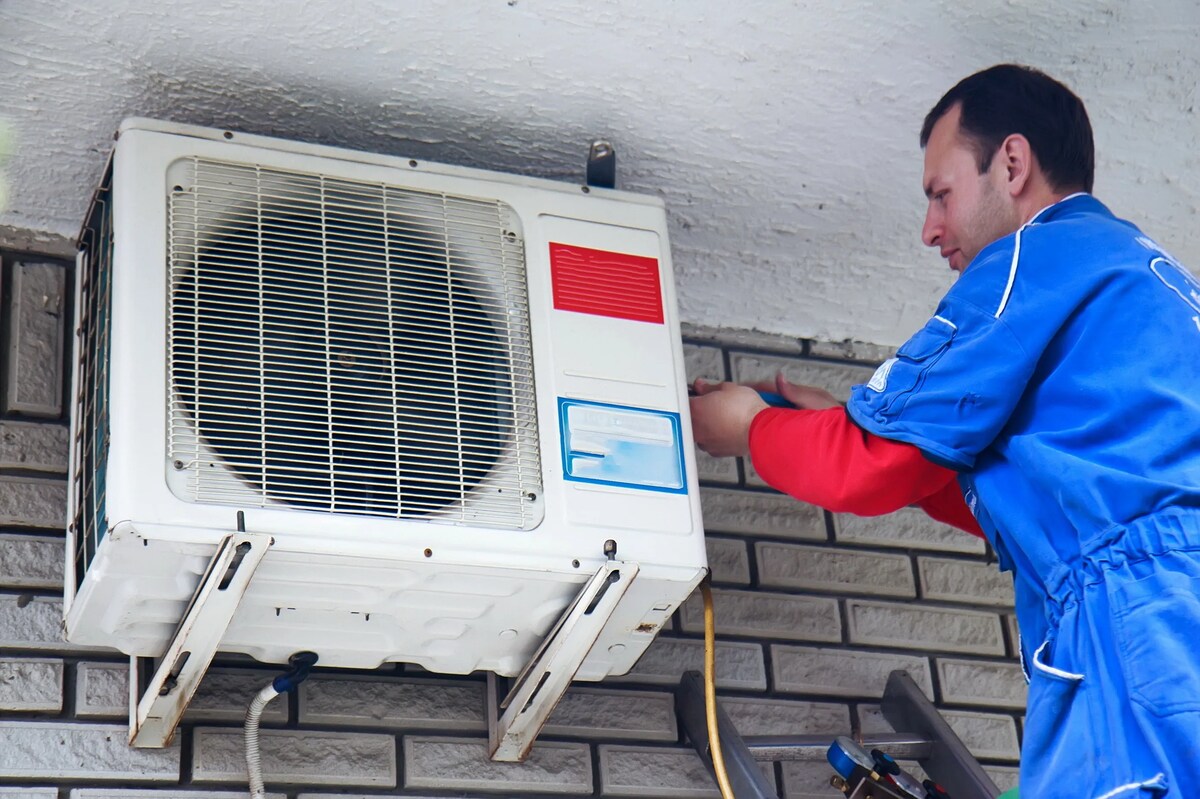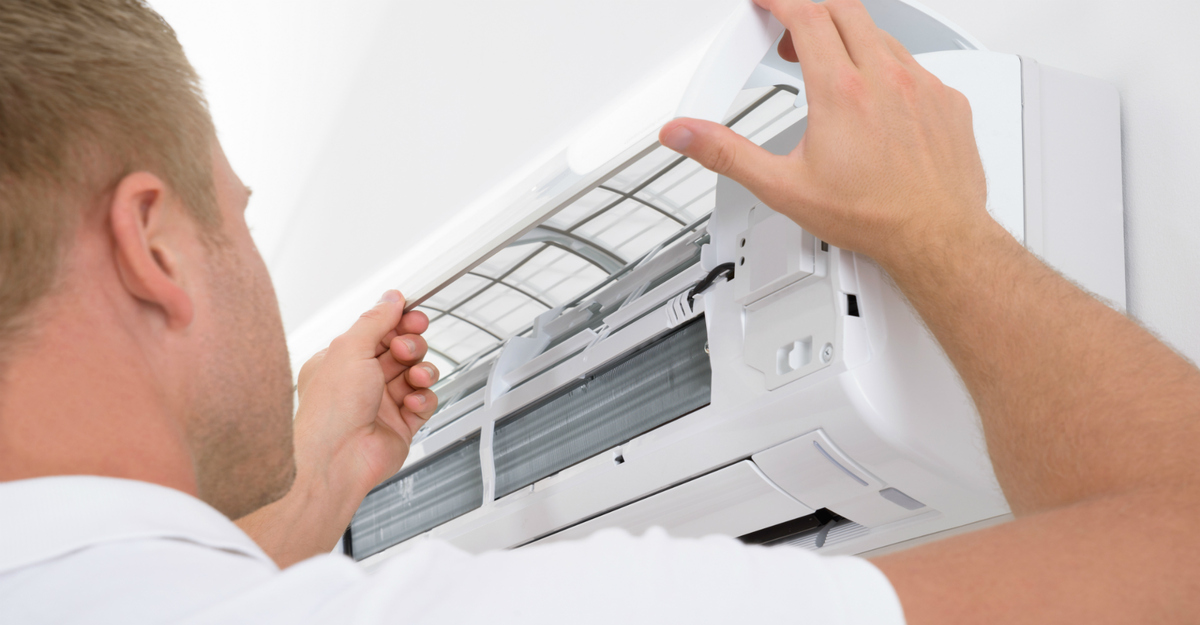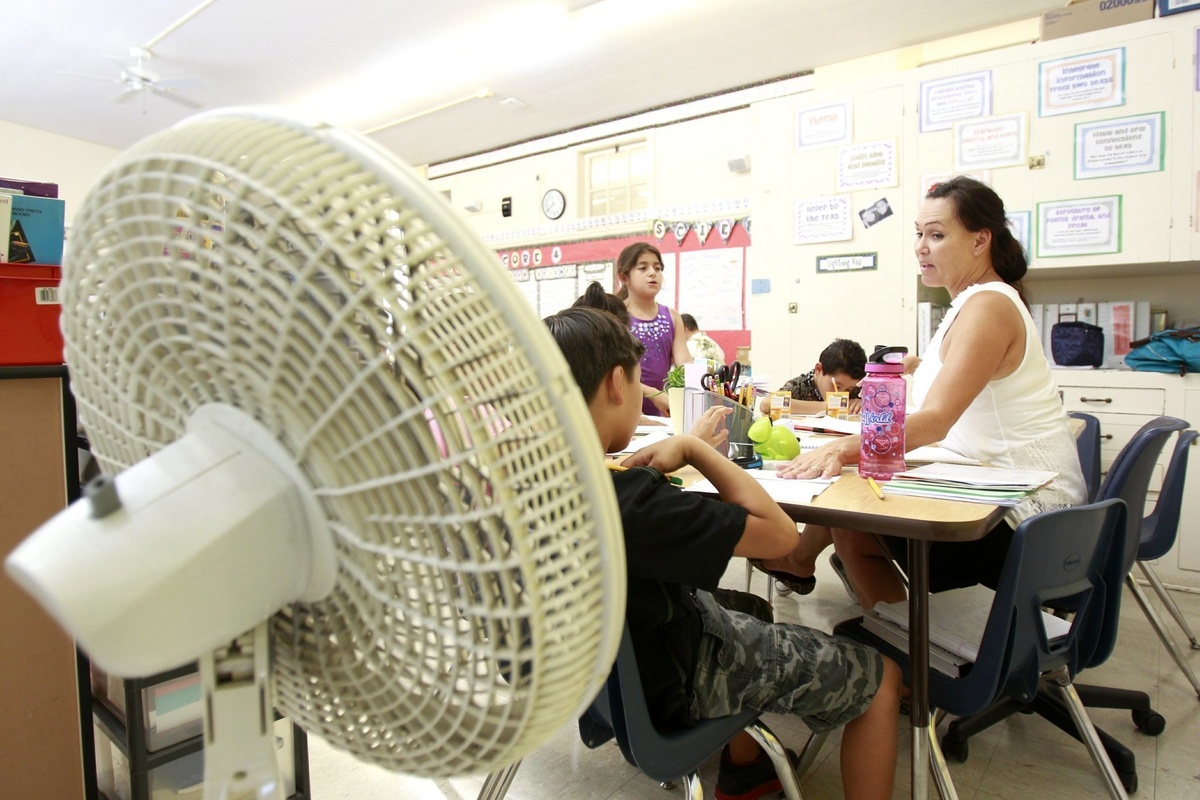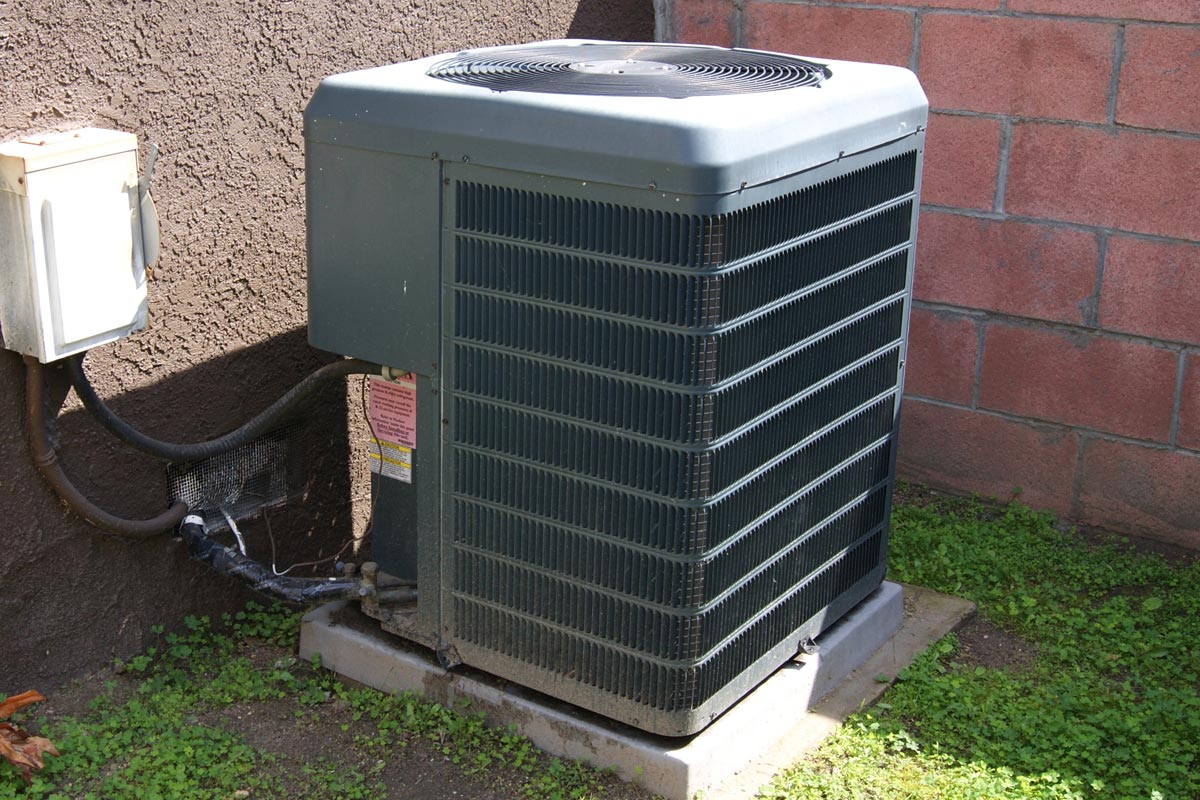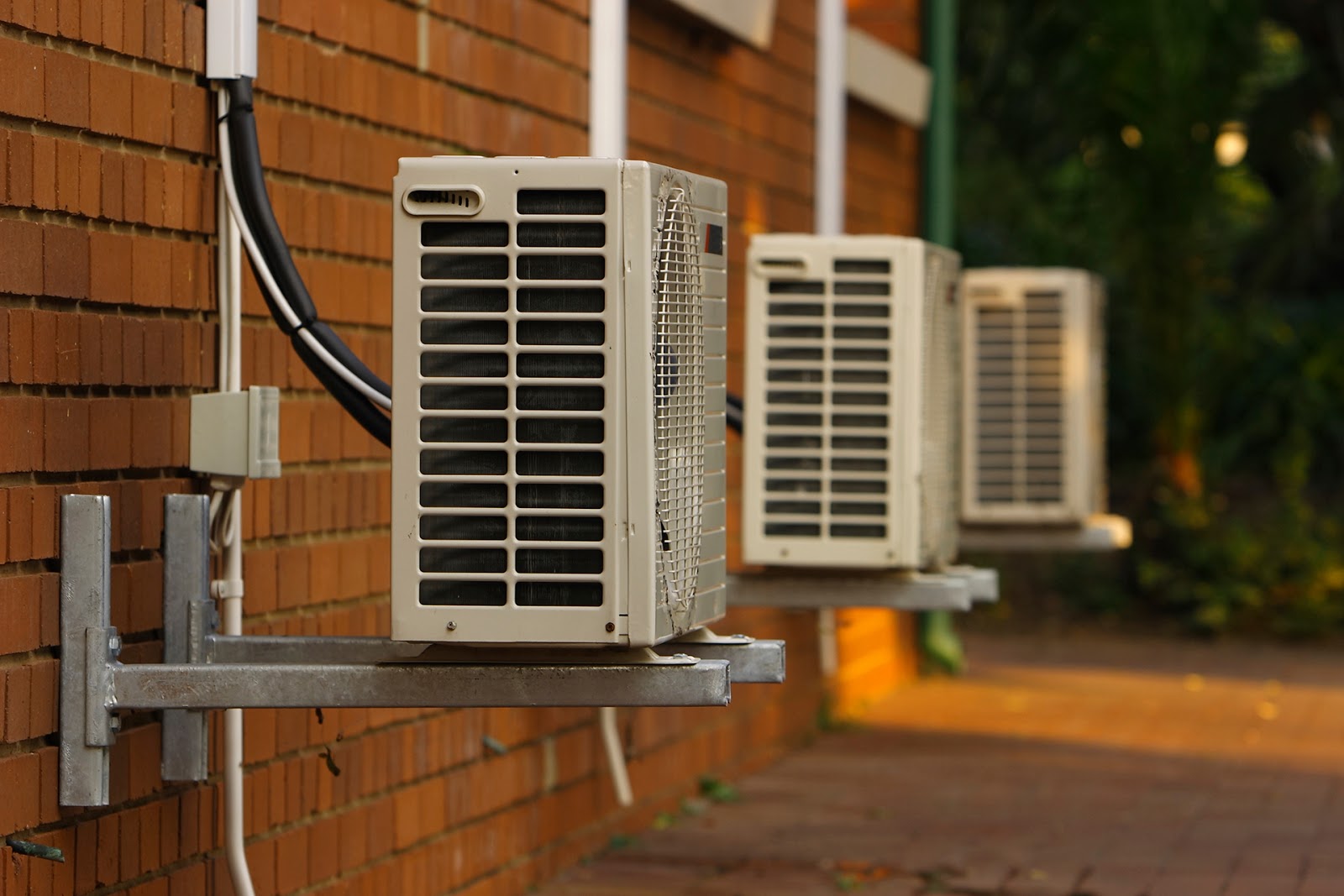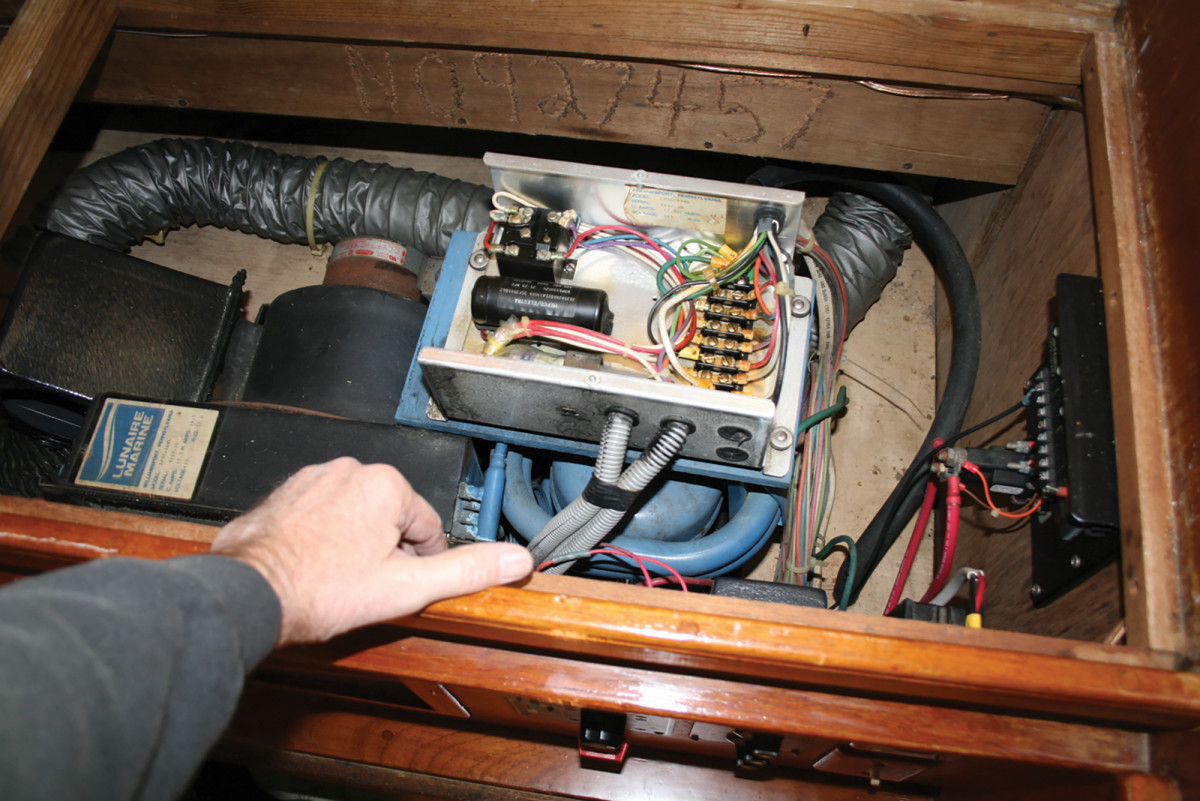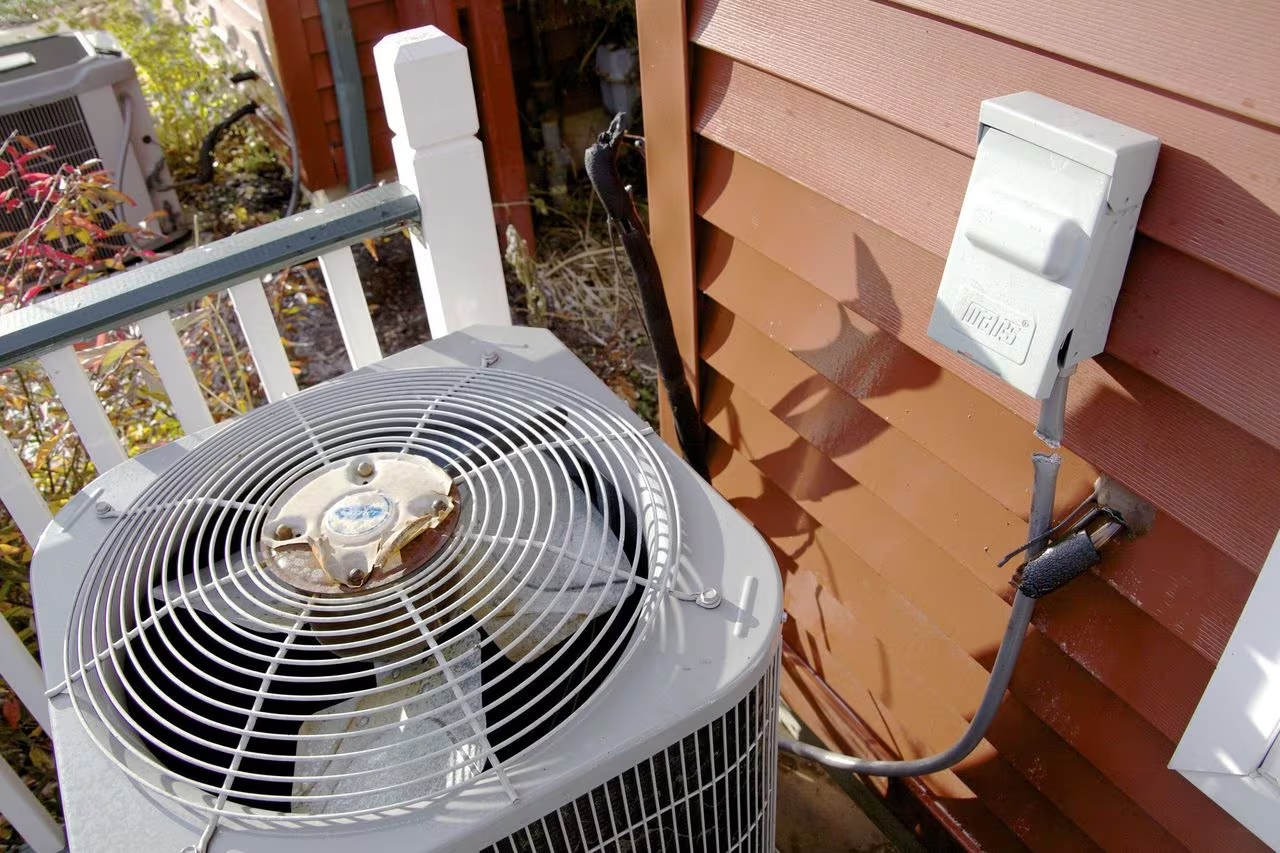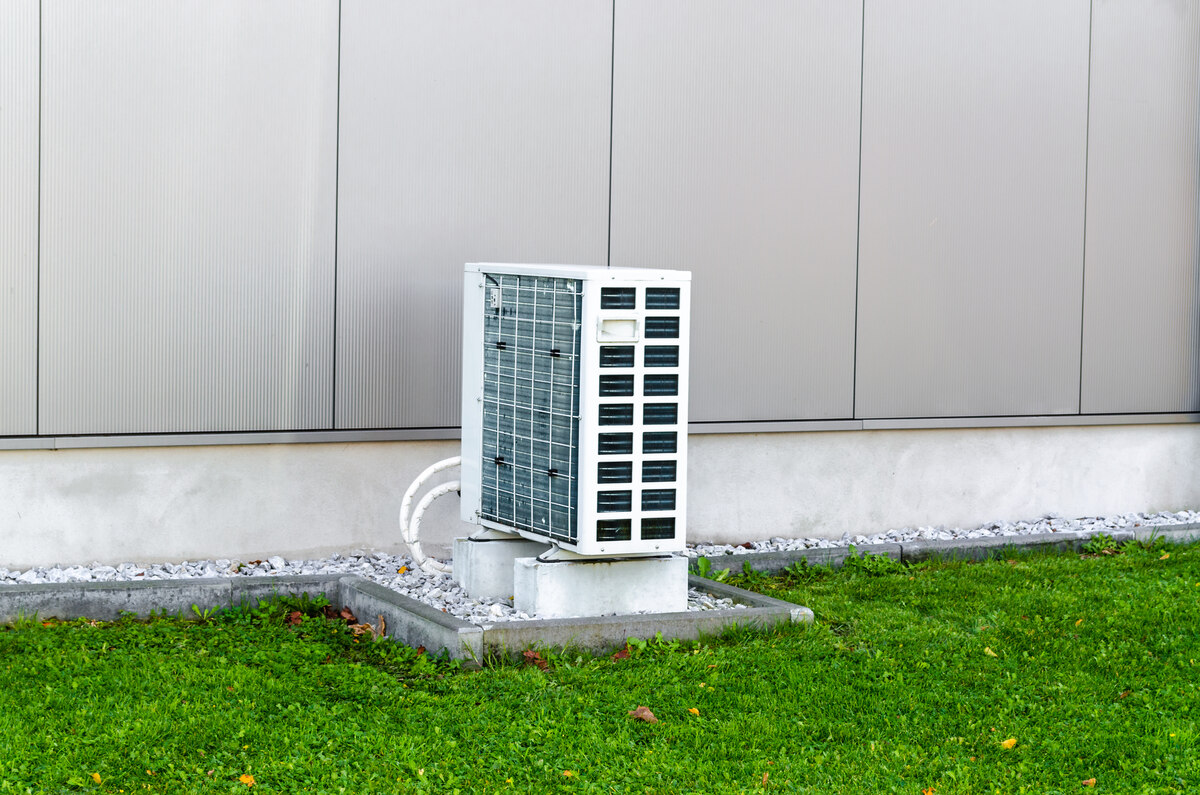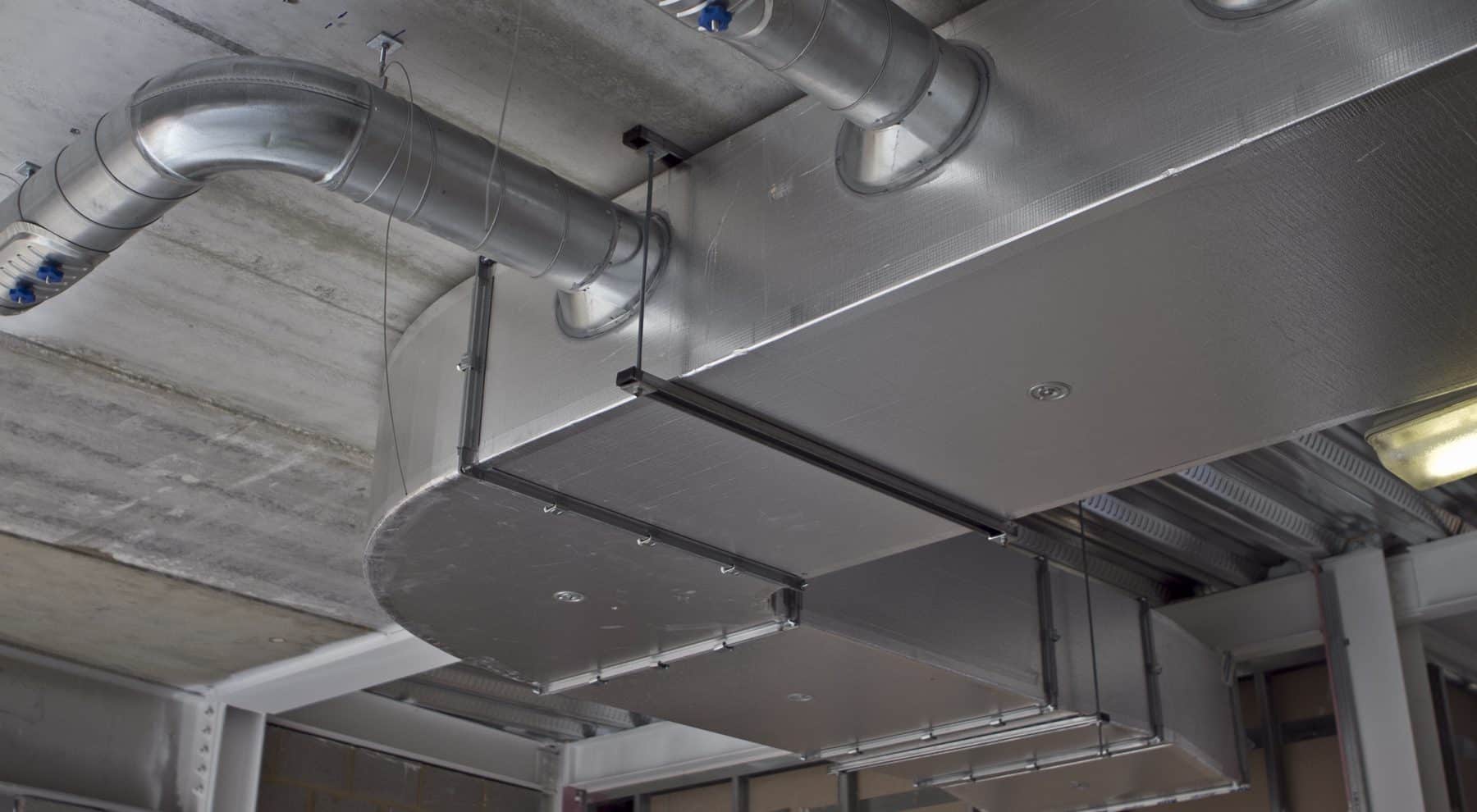Home>Home Maintenance>How Long Does A Landlord Have To Fix Air Conditioning In Texas
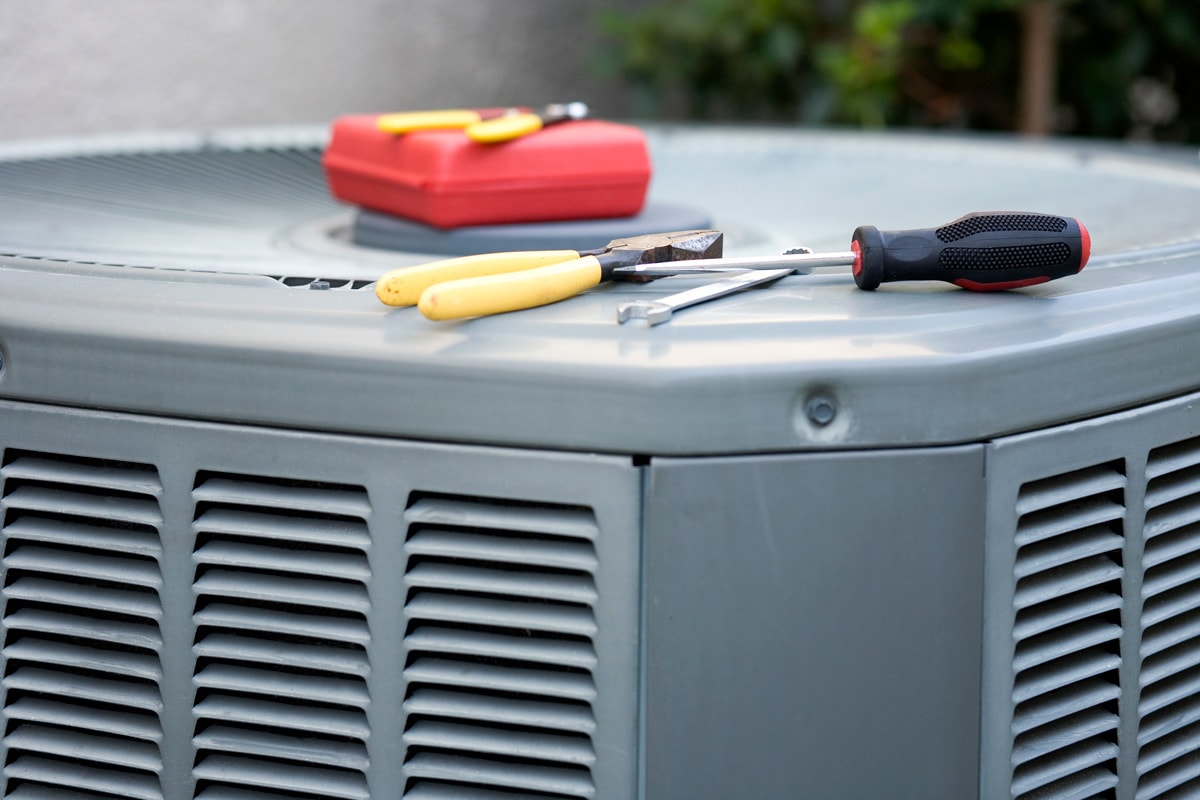

Home Maintenance
How Long Does A Landlord Have To Fix Air Conditioning In Texas
Modified: March 6, 2024
In Texas, landlords are required to repair air conditioning within a reasonable time frame. Ensure your home maintenance needs are met with our expert assistance.
(Many of the links in this article redirect to a specific reviewed product. Your purchase of these products through affiliate links helps to generate commission for Storables.com, at no extra cost. Learn more)
Introduction
Welcome to the world of being a landlord in Texas! As a landlord, it is crucial to understand the rights and responsibilities you have when it comes to maintaining and repairing the essential components of your rental property. One such vital component is the air conditioning system.
In this article, we will explore the Texas landlord and tenant laws regarding the repair and maintenance of air conditioning systems. We will delve into the tenant’s rights, the landlord’s duties, and the timelines within which the landlord must address any issues related to air conditioning.
Let’s dive in and equip you with the knowledge you need to navigate the responsibilities of being a landlord and ensure your tenants’ comfort and satisfaction.
Key Takeaways:
- Landlords in Texas must promptly repair air conditioning systems to provide tenants with a safe and comfortable living environment, ensuring their well-being and satisfaction.
- Tenants have rights to prompt air conditioning repairs, and if landlords delay, tenants can take action, such as terminating the lease or making repairs and deducting the cost from rent.
Texas Landlord and Tenant Laws
Before we get into the specifics of how long a landlord has to fix air conditioning in Texas, it’s important to have a solid understanding of the governing laws. In Texas, the relationship between landlords and tenants is regulated by the Texas Property Code, specifically Chapter 92, which outlines the rights and responsibilities of both parties.
Under the Texas Property Code, landlords are required to provide a safe and habitable living environment for their tenants. This includes ensuring that the property is in compliance with all building codes, including proper functioning of essential utilities such as heating, plumbing, and air conditioning.
Additionally, landlords are required to make repairs in a timely manner and maintain the property in a manner that prevents hazards and ensures the tenant’s safety. Failure to fulfill these obligations can lead to legal consequences and potential penalties.
On the other hand, tenants are expected to promptly report any repair issues to the landlord and allow reasonable access to the property for repairs to be made. If a tenant fails to report repair issues or denies access for repairs, it may affect their rights in seeking remedies for the repairs.
Now that we have a foundation of the Texas landlord and tenant laws in place, let’s explore how these laws specifically apply to air conditioning repairs.
Tenant’s Rights Regarding Air Conditioning
Tenants in Texas have specific rights when it comes to the availability and functioning of air conditioning in their rental properties. The Texas Property Code ensures that tenants have the right to a habitable living space, which includes access to functional and adequately maintained air conditioning.
If the air conditioning in a rental property becomes non-functional or malfunctions, it is the tenant’s right to have it repaired in a timely manner. The tenant has the responsibility to notify the landlord of the issue promptly and provide reasonable access to the property for repairs to be made.
In cases where the air conditioning issue renders the property uninhabitable or poses a health risk, the tenant may have additional rights. Texas law recognizes that extreme temperatures can pose a danger, especially to vulnerable individuals such as the elderly, children, or those with certain medical conditions.
If the air conditioning is not functional, and the outside temperature exceeds 85 degrees Fahrenheit, the tenant has the right to take alternative measures to cool the property, such as providing temporary window units or portable air conditioners. The tenant is also entitled to deduct the reasonable cost of these temporary measures from their rental payments.
It is important for tenants to document all communication with the landlord regarding the air conditioning issue and any expenses incurred as a result of the malfunction. This documentation can serve as evidence in case of any disputes or legal actions.
Now that we understand the tenant’s rights regarding air conditioning, let’s explore the landlord’s duty to repair and maintain the air conditioning system in a rental property.
Emergency Situations and Landlord’s Responsibilities
In emergency situations where the air conditioning system poses an immediate threat to the tenant’s health or safety, the landlord has a heightened responsibility to address the issue promptly. This can include situations where the AC malfunctions during extreme weather conditions or if there is a risk of electrical hazards or water damage.
In such cases, the tenant should immediately notify the landlord of the emergency and take steps to mitigate any potential damages or dangers. The landlord is legally obligated to respond promptly and take appropriate action to remedy the emergency situation.
The specific actions the landlord should take in an emergency situation may vary depending on the circumstances. They may need to arrange for immediate repairs, provide temporary accommodation for the tenant, or take other necessary steps to ensure the tenant’s safety and well-being.
If the landlord fails to address the emergency situation or does not respond within a reasonable time frame, the tenant may have legal grounds to seek remedies, such as terminating the lease agreement or taking legal action.
It is important for both landlords and tenants to understand their responsibilities in emergency situations and work together to resolve the issue as quickly as possible, prioritizing the well-being and safety of the tenant.
Now that we have covered emergency situations, let’s discuss the general duty of landlords to repair and maintain the air conditioning system in a rental property.
Landlord’s Duty to Repair and Maintain Air Conditioning
As a landlord in Texas, you have a legal duty to maintain and repair the air conditioning system in your rental property. This duty applies to both central air conditioning systems and individual units, such as window or wall-mounted air conditioners, that you provide to the tenants.
It is important to note that this duty extends not only to keeping the air conditioning system in working order but also to ensuring that it is in compliance with all applicable codes and standards. This includes addressing any issues related to electrical wiring, refrigerant leaks, ductwork, or any other components necessary for the proper functioning of the system.
Your responsibility as a landlord is to make sure that the air conditioning system is operational and capable of producing cool air during the hot summer months. If the system is not functioning properly, it is your duty to arrange for repairs in a timely manner.
Regular maintenance of the air conditioning system is also essential. It is advisable to have the system inspected and serviced by a professional HVAC technician on a regular basis. This helps prevent major breakdowns and ensures the efficient and reliable functioning of the system.
Remember, neglecting your duty to repair and maintain the air conditioning system can lead to unhappy tenants, potential legal disputes, and even financial penalties. It is in your best interest, as well as the interest of your tenants, to address any air conditioning issues promptly and efficiently.
Now that we have discussed the landlord’s duty to repair and maintain the air conditioning system, let’s explore the timelines within which the landlord must address any air conditioning issues.
In Texas, landlords are required to make repairs to air conditioning within a reasonable time frame, usually within a few days. If the landlord fails to do so, tenants may have the right to withhold rent or pursue legal action.
Read more: Which Prisons In Texas Have Air Conditioning
Timelines for Landlord to Fix Air Conditioning
When it comes to addressing air conditioning issues in Texas rental properties, there are no specific timelines outlined in the law. However, the Texas Property Code requires landlords to make repairs promptly and within a reasonable timeframe.
The exact timeline for the landlord to fix the air conditioning will depend on factors such as the severity of the issue, the availability of repair professionals, and the nature of the repair needed. For minor issues, such as a simple repair or maintenance task, the landlord should aim to address the problem within a few days.
In more complex cases or situations that require parts to be ordered, the timeline may be extended. However, it is generally expected that the landlord will make diligent efforts to resolve the air conditioning issue as quickly as possible.
Communication is key during this process. It is important for the tenant to promptly notify the landlord of the problem and for the landlord to keep the tenant informed of the progress being made in resolving the issue. If there are any delays or unforeseen circumstances, the landlord should communicate this to the tenant and provide an updated timeline.
If the air conditioning issue poses a significant health risk or renders the property uninhabitable, the landlord must act with a sense of urgency to address the problem. In such cases, it may be necessary to expedite the repairs or provide alternative cooling options for the tenant while the repairs are being made.
Overall, it is in the best interest of both the landlord and the tenant to work together to resolve the air conditioning issue in a fair and timely manner. By doing so, you can maintain a positive landlord-tenant relationship and ensure the comfort and satisfaction of your tenants.
Next, we will explore any exceptions or special circumstances that may affect the repair timeline for the air conditioning system.
Exceptions and Special Circumstances
While the general rule is for landlords to address air conditioning issues promptly, there may be certain exceptions and special circumstances that could affect the repair timeline.
One such exception is if the tenant caused the air conditioning problem through their own negligence or deliberate actions. In such cases, the landlord may not be responsible for the repairs or may have the right to seek reimbursement for the costs associated with fixing the issue.
Additionally, if there are extenuating circumstances beyond the landlord’s control, such as a natural disaster or a widespread power outage, it may be difficult to immediately address the air conditioning problem. In these situations, landlords are still expected to make reasonable efforts to get the repairs completed as soon as possible.
In some cases, the repair timeline may be affected by the availability of qualified repair professionals or the need to obtain necessary permits or approvals. These factors can introduce delays that are outside of the landlord’s control.
It is important for landlords to keep documentation of any exceptional circumstances that might affect the repair timeline. This documentation can help provide evidence in case of any disputes or legal actions.
Ultimately, each situation is unique, and it is crucial to assess the circumstances and work towards resolving the issue in a fair and reasonable manner.
Now that we have covered the exceptions and special circumstances, let’s move on to discussing the remedies available to tenants in case of delayed air conditioning repairs.
Tenant Remedies for Delayed Air Conditioning Repairs
If a landlord fails to address an air conditioning issue within a reasonable timeframe, tenants in Texas have certain remedies available to them.
The first step for the tenant is to document all communication with the landlord regarding the air conditioning problem. This includes dates of notifications, any promises made, and any actions taken by the landlord. This documentation will be essential if the tenant needs to take legal action or seek remedies.
If the delay in repairing the air conditioning system is substantial and the landlord has not made reasonable efforts to resolve the issue, the tenant may choose to exercise their rights under the Texas Property Code. One option is to terminate the lease agreement due to the landlord’s failure to provide a habitable living environment.
Keep in mind that terminating the lease agreement should be a last resort, and it is advisable to consult with an attorney before taking such action. Terminating the lease may have legal implications and could result in the loss of security deposits or potential claims from the landlord.
Another remedy available to tenants is the ability to make the repairs themselves or hire a qualified professional to do so. However, before taking this course of action, the tenant must provide the landlord with written notice of their intent to repair and the estimated cost. The landlord then has the opportunity to rectify the issue within a reasonable time frame.
If the landlord fails to respond or fails to make the necessary repairs within the given time frame, the tenant may proceed with the repairs and deduct the cost from future rent payments. Again, it is crucial to document all communication, receipts, and evidence related to the repairs made.
Keep in mind that tenants must follow the proper procedures outlined in the Texas Property Code and should consult with an attorney to ensure compliance with the law.
Now that we have covered the tenant remedies, let’s conclude our discussion on how long a landlord has to fix air conditioning in Texas.
Conclusion
In Texas, landlords have a legal duty to repair and maintain the air conditioning system in their rental properties, ensuring that tenants have a safe and comfortable living environment. While there are no specific timelines outlined in the law, landlords are expected to address air conditioning issues promptly and within a reasonable timeframe.
Tenant’s rights regarding air conditioning include the right to a habitable living space and the right to prompt repairs. In emergency situations, landlords have an increased responsibility to address the issue promptly to ensure the tenant’s health and safety.
Communication between landlords and tenants is crucial throughout the repair process, and documenting all correspondence is essential. If repairs are delayed for an extended period, tenants have remedies available to them, such as terminating the lease agreement or making repairs themselves and deducting the cost from future rent payments.
Exceptions and special circumstances, such as tenant negligence or unforeseen events, can sometimes affect the repair timeline. In these cases, landlords should make reasonable efforts to address the issue as quickly as possible.
To navigate these complexities, it is always advisable for both landlords and tenants to familiarize themselves with the Texas Property Code and consult with legal professionals when necessary. By understanding their rights and responsibilities, both parties can work together to ensure a harmonious and comfortable living arrangement.
As a landlord, maintaining the air conditioning system not only fulfills your legal obligations but also helps create a positive tenant experience and maintains the value of your rental property. By staying proactive and responsive, you can build trust with your tenants and create a mutually beneficial relationship.
In conclusion, being aware of the timelines and obligations surrounding air conditioning repairs in Texas is essential for landlords. By fulfilling your duties diligently and addressing any issues promptly, you can ensure the well-being and satisfaction of your tenants while fostering a positive renting experience.
Frequently Asked Questions about How Long Does A Landlord Have To Fix Air Conditioning In Texas
Was this page helpful?
At Storables.com, we guarantee accurate and reliable information. Our content, validated by Expert Board Contributors, is crafted following stringent Editorial Policies. We're committed to providing you with well-researched, expert-backed insights for all your informational needs.
